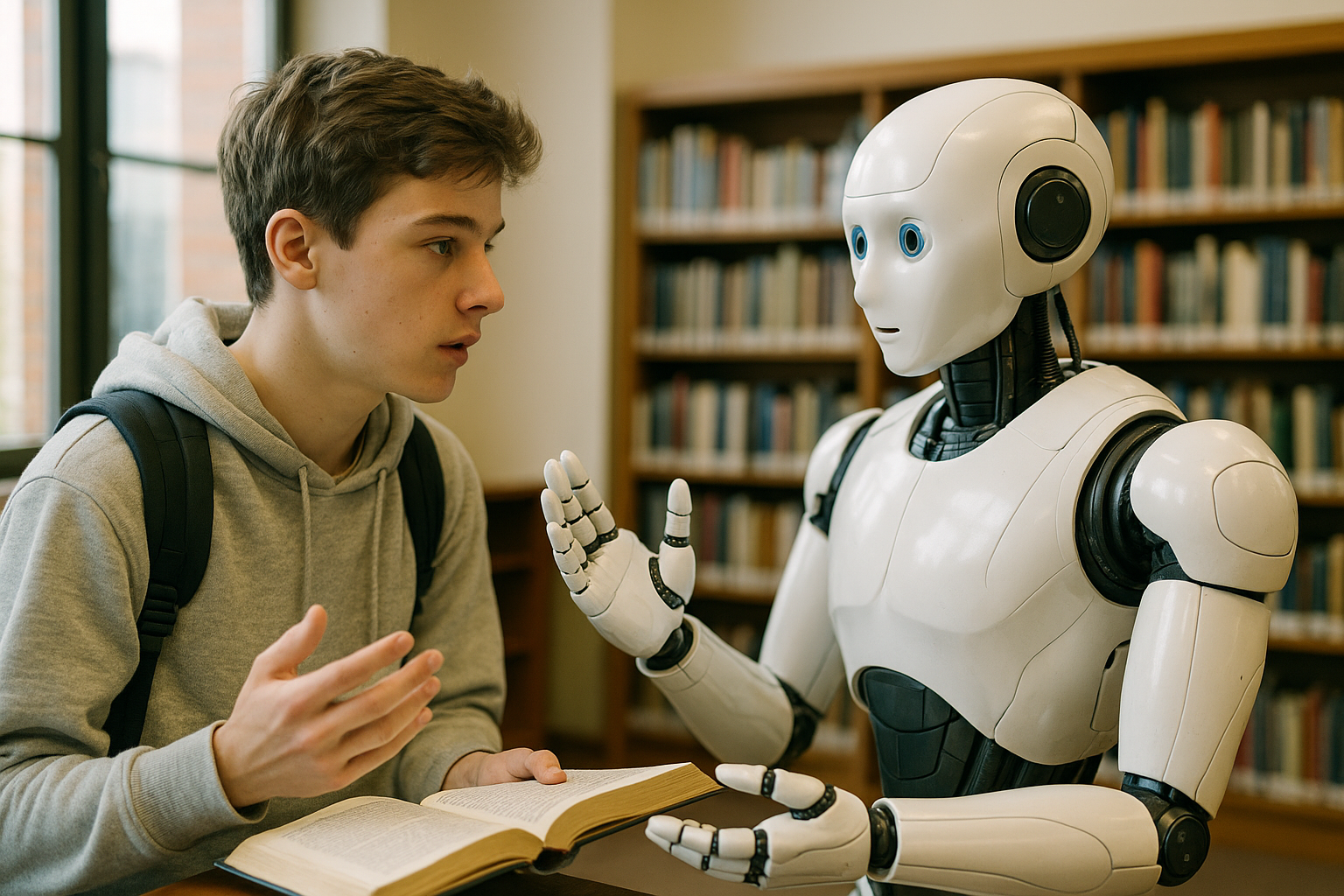Education’s next leap: AI agents to foster personalized, continuous learning
The study traces an emotional and institutional journey that educators face as AI infiltrates traditional learning structures. Many educators, already strained by the upheaval of the pandemic, encountered generative AI with apprehension, viewing it as a further threat to conventional assignments and assessments. Writing tasks, once a trusted metric for critical thinking, suddenly seemed undermined by AI-generated content.

Technology is rapidly challenging traditional methods of teaching, learning, and assessment. Institutions are struggling to keep pace, educators are rethinking their roles, and students are navigating an evolving landscape of digital tools that promise both empowerment and disruption. Amidst this backdrop, a new study explores the transformational potential of AI in shaping the future of education.
In a study by Steve Joordens, a professor of psychology at the University of Toronto Scarborough, futuristic insights intersect with real-world urgency as the education sector grapples with AI disruption. The study, titled "When Science Fiction Collides with Reality: The Future of Learning and the One After That," is published in AI Magazine.
Can educators transform fear of AI into a force for pedagogical growth?
The study traces an emotional and institutional journey that educators face as AI infiltrates traditional learning structures. Many educators, already strained by the upheaval of the pandemic, encountered generative AI with apprehension, viewing it as a further threat to conventional assignments and assessments. Writing tasks, once a trusted metric for critical thinking, suddenly seemed undermined by AI-generated content.
Joordens documents how structured interaction with AI can gradually replace fear with understanding. Through what he terms "wonder sessions," educators can explore AI's capabilities and limitations firsthand, uncovering opportunities to leverage it in enriching ways. This shift, from anxious avoidance to playful exploration, reframes AI as a pedagogical partner rather than a plagiaristic threat.
The implication is that teachers who learn to work with AI tools could be better positioned to harness them for formative assessment, creative assignments, and dynamic student engagement. This transition also empowers educators to lead the change rather than resist it, placing them at the heart of innovation rather than its periphery.
How could AI rethink the way students are assessed?
A central idea explored in the paper is the potential for AI to redefine how learning is assessed. Joordens introduces a conceptual AI agent named HAL, short for Holistic Assessment of Learning, designed to replace traditional grading systems with dynamic, individualized feedback. HAL would operate as an always-available, AI-based oral examiner that evaluates more than factual recall, capturing traits like empathy, creativity, logic, and growth over time.
In this framework, students could engage in assessments modeled after oral defenses, but powered by AI. Such a system would overcome many of the constraints of current large-scale education systems, where time and scalability often prevent deep, personalized evaluations. HAL represents a move toward assessments that are adaptive and formative, focused on learning rather than just certification.
This model could significantly alter the role of the teacher from judge to coach, freeing educators to focus on guiding student development rather than assigning numerical grades. It also aligns with long-standing calls in educational psychology for more holistic, process-oriented assessment methods. By mimicking human conversation while maintaining consistency and objectivity, HAL aims to offer the best of both machine precision and human nuance.
Is a life-embedded learning companion the next evolution in education?
The author ventures into an even more futuristic vision with the concept of a constant learning companion: an AI assistant embedded in a person’s daily life. Dubbed "Yoda on Your Shoulda," this AI would provide spontaneous, real-time educational interventions based on context and curiosity. Learning would be no longer confined to classrooms or curriculum but distributed across life’s unfolding moments.
The assistant could initiate a lesson when a user shows interest in something, a motor, a painting, or a conversation, making education responsive and personal. It would encourage lifelong learning, social intelligence, and critical reflection by observing behaviors, adapting guidance, and proposing collaborative activities with others.
Such a concept challenges the traditional structures of schooling, potentially rendering classrooms, textbooks, and even formal teachers obsolete. Learning would become fluid, adaptive, and continuous, shaped by experience rather than restricted to stages of life or institutions. The AI would simultaneously teach and assess, maintaining a living profile of a learner’s growth and potential.
Although still conceptual, this vision expands the conversation about what education could be when learning is no longer a time-bound activity but a state of continuous development. It also underscores the ethical and psychological implications of such constant surveillance and guidance, prompting a call for careful design grounded in human dignity and autonomy.
A call to embrace, not fear, the future
Rather than promoting a technocentric replacement of educators, Joordens emphasizes a future where teachers play a pivotal role as curators, facilitators, and moral anchors in an AI-enhanced educational ecosystem. The goal is not to remove educators but to empower them through AI, reorienting their work around creativity, mentorship, and human connection.
The study encourages structured engagement with AI tools so that educational institutions can respond proactively, not reactively, to technological change. It posits that the future of learning requires both technological fluency and emotional intelligence, combining machine efficiency with the uniquely human capacity to care, adapt, and inspire.
- FIRST PUBLISHED IN:
- Devdiscourse










